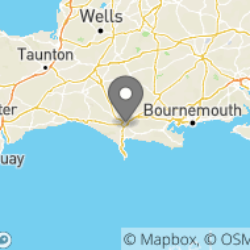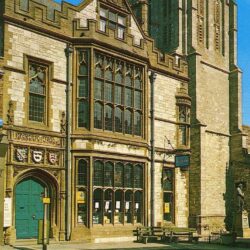Dorchester, England


What It Is Like to Retire in Dorchester
Dorchester, in the county of Dorset, England, is a historic market town on the banks of the River Frome. With a population of about 20,000, it is becoming a favorite retirement choice in England, as reported by Experian, the credit checking company. It refers to a group of the pension population as Smarties (senior market town retirees) who move here to enjoy a comfortable retirement.
Retirees could keep busy in Dorchester with its interesting history that dates back even before pre-Roman Britain, and there are still some remaining Roman features. Within Dorchester parish there are close to 300 structures that are listed by Historic England for their historic or architectural interest. Described as the “Small Town with a Big Story”, Dorchester offers town walks and several types of tours to explore its rich past.
The Town Pump is a central point and is located next to Dorchester's Corn Exchange and the impressive clock tower, where shops and businesses are located. Dorchester is also home to Kingston Maurward College. Picture of Town Pump monument and the Corn Exchange courtesy of Wikipedia and Alex Liivet; picture of St. Peter's Church courtesy of Wikipedia and Oast House Archive; picture of River Frome courtesy of Wikipedia and Malcome Etherington.

Where to Retire in Dorchester and Home Prices
There are many different housing choices and prices in Dorchester. The average price of a flat, the most popular type of housing, is £177,538. Single family homes are pricey with the average cost £249,000
What Is Special about Dorchester
Dorchester is a small city full of history and the business hub of Dorset County. It has a hospital, a new library and education center. The Charles Street development has plans for several shops, a car park, hotel, and affordable housing.
What Is Not Special about Dorchester
High cost of living

Who Will Like Retirement in Dorchester
Those who want a walkable market town with access to good transportation and health care. History buffs would enjoy living here.
Local Economy Is Driven by
Public Administration, education and health help to drive the economy, but Dorchester functions as a market town and serves and extensive rural area. Agricultural machinery, printing and leatherworking are local specialities.
Charles Street development completed its first phase that includes a library and an adult education center. Future phases will include over 20 shops and a hotel which is predicted to create hundreds of new jobs.
Climate and Physical Environment
The average January temperature in Dorchester is about 43 degrees, July's average in 62 degrees.
Restaurants & Cultural Scene
Dorchester is home to hundreds of historical sites and structures along with museums, galleries, and restaurants; The Durnoviaria Town walk takes you all around the town giving you both the history and great views of Dorchester; Dorset County museum is a world-class contemporary museum with exhibitions, library, and learning center; Maiden Castle is an Iron Age hill fort; The Borough Gardens contains two tennis courts, a bowling green, and fabulous flower beds, and it hosts concerts and a number of events during the spring and summer months.
Crime
Dorchester has a low crime rate.
Medical facilities
Dorset County Hospital is located here.
Transportation
The town has two railway stations: Dorchester South on the South Western Main Line to Bournemouth, Southampton and London, and Dorchester West on the Heart of Wessex Line connects with Yeovil, Bath and Bristol. Dorchester South railway station will become the first solar powered railway station in the UK.
The nearest airport is Bournemouth Airport about 30 miles from Dorchester.


Comments on "Dorchester"